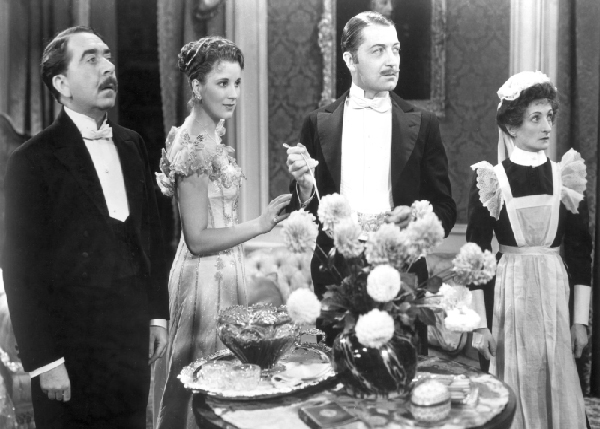
The first six films to win the Oscar as Best Picture were seasonal, meaning that they were credited for two years, much like a school year. After 1933 and forever after, the awards would be marked as annual. With that, some Oscar historians have noted that the seasonal Best Picture winners (with the exception of All Quiet on the Western Front) are some of The Academy’s worst. In some respects I cannot disagree, especially when faced with a film like Cavalcade.
Here is a movie with respectability written all over it: it was expensive; it was based on a Noel Coward play; it starred some very respected British stage actors; it was gorgeously photographed. But respectable doesn’t translate into greatness. To be sure, the story has some heart. It is hard not to be moved by the triumphs and the heartbreaks of a generation in the lives of the Marryots, an English family whose fortunes and failures are seen in the generational prism from 1899 to 1933. We follow them through the century’s red letter highlights from the birth of the 20th Century to the Boar War, the death of Queen Victoria, the sinking of the Titanic and the First World War. The movie has a heart but I find it a struggle to sit through even in a rare screen performance by English stage legend Diane Wynyrd. But the movie lacks some much needed passion. It’s stagy, with wooden dialogue and a pace that feels like it has lead weights around its feet.
What bothers me most is that this wooden sawhorse was the Best Picture winner in a year that gave us 42nd Street, I Was a Fugitive from a Chain Gang, The Private Life of Henry VIII, Duck Soup, The Invisible Man, Death Takes a Holiday, King Kong and the Mae West adventure She Done Him Wrong. You can see where I’m going here. To stack any of those films alongside Cavalcade is to see how this choice was a real head-scratcher.
